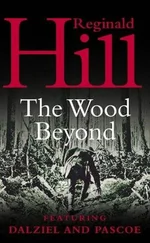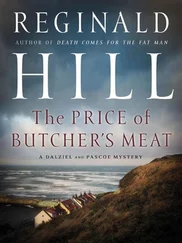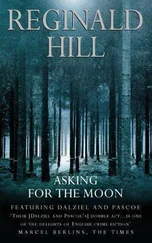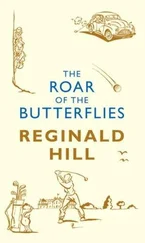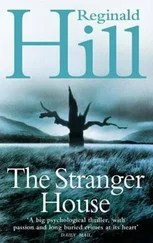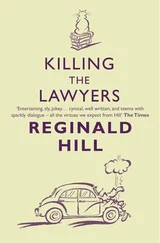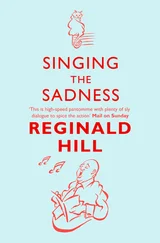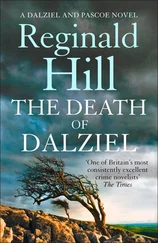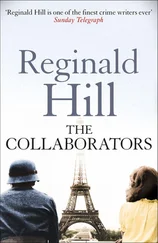Reginald Hill - Dialogues of the Dead
Здесь есть возможность читать онлайн «Reginald Hill - Dialogues of the Dead» — ознакомительный отрывок электронной книги совершенно бесплатно, а после прочтения отрывка купить полную версию. В некоторых случаях можно слушать аудио, скачать через торрент в формате fb2 и присутствует краткое содержание. Год выпуска: 2001, ISBN: 2001, Издательство: Doubleday Canada, Жанр: Полицейский детектив, на английском языке. Описание произведения, (предисловие) а так же отзывы посетителей доступны на портале библиотеки ЛибКат.
- Название:Dialogues of the Dead
- Автор:
- Издательство:Doubleday Canada
- Жанр:
- Год:2001
- ISBN:978-0-385-67261-0
- Рейтинг книги:5 / 5. Голосов: 1
-
Избранное:Добавить в избранное
- Отзывы:
-
Ваша оценка:
- 100
- 1
- 2
- 3
- 4
- 5
Dialogues of the Dead: краткое содержание, описание и аннотация
Предлагаем к чтению аннотацию, описание, краткое содержание или предисловие (зависит от того, что написал сам автор книги «Dialogues of the Dead»). Если вы не нашли необходимую информацию о книге — напишите в комментариях, мы постараемся отыскать её.
Dialogues of the Dead — читать онлайн ознакомительный отрывок
Ниже представлен текст книги, разбитый по страницам. Система сохранения места последней прочитанной страницы, позволяет с удобством читать онлайн бесплатно книгу «Dialogues of the Dead», без необходимости каждый раз заново искать на чём Вы остановились. Поставьте закладку, и сможете в любой момент перейти на страницу, на которой закончили чтение.
Интервал:
Закладка:
Follows was congratulating himself on having come rather well out of this when Agnew added that of course the Hon. (whose reading range didn’t extend beyond the sporting magazines) couldn’t be expected to plough through all the entries, that her team of ace reporters were far too busy writing their own deathless prose to read anyone else’s, and that therefore she was looking to the library services with their acknowledged expertise in the field of prose fiction to sort out the entries and produce a short list.
Percy Follows knew when he’d been tagged and looked for someone on the library staff to tag in turn. All roads led to Dick Dee who, despite having an excellent degree in English, seemed never to have learned how to say no.
The best he could manage by way of demur was, “Well, we are rather busy … How many entries are you anticipating?”
“This sort of thing has a very limited appeal,” said Follows confidently. “I’d be surprised if we get into double figures. Couple of dozen at the very most. You can run through them in your tea break.”
“That’s a hell of a lot of tea,” grumbled Rye when the first sackful of scripts was delivered from the Gazette . But Dick Dee had just smiled as he looked at the mountain of paper and said, “It’s mute inglorious Milton time, Rye. Let’s start sorting them out.”
The initial sorting out had been fun.
The idea of refusing to read anything not typewritten had seemed very attractive, but rapidly they realized this was too Draconian. On the other hand as more sackloads arrived, they knew they had to have some rules of inadmissibility.
“Nothing in green ink,” said Dee.
“Nothing on less than A5,” said Rye.
“Nothing handwritten where the letters aren’t joined up.”
“Nothing without meaningful punctuation.”
“Nothing which requires use of a magnifying glass.”
“Nothing that has organic matter adhering to it,” said Rye, picking up a sheet which looked as if it had recently lined a cat tray.
Then she’d thought that perhaps the offending stain had come from some baby whose housebound mother was desperately trying to be creative at feeding time, and residual guilt had made her protest strongly when Dick had gone on, “And nothing sexually explicit or containing four-letter words.”
He had listened to her liberal arguments with great patience, showing no resentment of her implied accusation that he was at best a frump, at worst a fascist.
When she finished, he said mildly, “Rye, I agree with you that there is nothing depraved, disgusting or even distasteful about a good fuck. But as I know beyond doubt that there’s no way any story containing either a description of the act or a derivative of the word is going to get published in the Gazette , it seems to me a useful filter device. Of course, if you want to read every word of every story …”
The arrival of yet another sackful from the Gazette had been a clincher.
A week later, with stories still pouring in and nine days to go before the competition closed, she had become much more dismissive than Dee, spinning scripts across to the dump bin after an opening paragraph, an opening sentence even, or, in some cases, just the title, while he read through nearly all of his and was building a much higher possibles pile.
Now she looked at the script he had interrupted her with and said, “First Dialogue? That mean there’s going to be more?”
“Poetic licence, I expect. Anyway, read it. I’d be interested to hear what you think.”
A new voice interrupted them.
“Found the new Maupassant yet, Dick?”
Suddenly the light was blocked out as a long lean figure loomed over Rye from behind.
She didn’t need to look up to know this was Charley Penn, one of the reference library’s regulars and the nearest thing Mid-Yorkshire had to a literary lion. He’d written a moderately successful series of what he called historical romances and the critics bodice-rippers, set against the background of revolutionary Europe in the decades leading up to 1848, with a hero loosely based on the German poet Heine. These had been made into a popular TV series where the ripping of bodices was certainly rated higher than either history or even romance. His regular attendance in the reference library had nothing to do with the pursuit of verisimilitude in his fictions. In his cups he had been heard to say of his readers, “You can tell the buggers owt. What do they know?” though in fact he had acquired a wide knowledge of the period in question through the “real” work he’d been researching now for many years, which was a critical edition with metrical translation of Heine’s poems. Rye had been surprised to learn that he was a school contemporary of Dick Dee. The ten years which Dee’s equanimity of temperament erased from his forty-something seemed to have been dumped on Penn, whose hollow cheeks, deep-set eyes and unkempt beard gave him the look of an old Viking who’d ravished and pillaged a raid too far.
“Probably not,” said Dee. “Be glad of your professional opinion though, Charley.”
Penn moved round the table so that he was looking down at Rye and showed uneven teeth in what she called his smarl, assuming he intended it as a smile and couldn’t help that it came out like a snarl. “Not unless you’ve got a sudden budget surplus.”
When it came to professional opinions, or indeed any activity connected with his profession, Charley Penn’s insistence that time equalled money made lawyers seem open-handed.
“So how can I help you?” said Dee.
“Those articles you were tracking down for me, any sign yet?”
Penn had no difficulty squaring his assertion that the labourer was worthy his hire with using Dee as his unpaid research assistant, but the librarian never complained.
“I’ll just check to see if there’s anything in today’s post,” he said.
He rose and went into the office behind the desk.
Penn remained, his gaze fixed on Rye.
She looked back unblinkingly and said, “Yes?”
From time to time she’d caught the old Viking looking at her like he was once more feeling the call of the sea, though so far he’d stopped short of rapine and pillage. In fact his preferred model seemed to be that guy in the play (what the hell was his name?) who went around the Forest of Arden, pinning poems to trees. From time to time scraps of Penn’s Heine translations would be put in her way. She’d open a file or pick up a book and there would be a few lines about a despairing lover staring down at himself staring up at his beloved’s window or a lonely northern fir-tree pining for the hand of an unattainably distant palm. Their presence was explained, if explanation were demanded, by inadvertence, accompanied by a knowing version of the smarl which was what she got now as Penn said, “Enjoy,” and went after Dee.
Now Rye gave her full attention to the First Dialogue , skimming through it rapidly, then reading it again more slowly.
By the time she’d finished, Dee had returned and Penn was back in his usual seat in one of the study alcoves from which he had been known to bellow abuse at young students whose ideas of silence did not accord with his own.
“What do you think?” said Dee.
“Why the hell am I reading this? is what I think,” said Rye. “OK, the writer’s trying to be clever, using a single episode to hint at a whole epic to come, but it doesn’t really work, does it? I mean, what’s it about? Some kind of metaphor of life or what? And what the hell’s that funny illustration all about? I hope you’re not showing me this as the best thing you’ve come across. If so, I don’t want to look at any of the other stuff in your possibles pile.”
Читать дальшеИнтервал:
Закладка:
Похожие книги на «Dialogues of the Dead»
Представляем Вашему вниманию похожие книги на «Dialogues of the Dead» списком для выбора. Мы отобрали схожую по названию и смыслу литературу в надежде предоставить читателям больше вариантов отыскать новые, интересные, ещё непрочитанные произведения.
Обсуждение, отзывы о книге «Dialogues of the Dead» и просто собственные мнения читателей. Оставьте ваши комментарии, напишите, что Вы думаете о произведении, его смысле или главных героях. Укажите что конкретно понравилось, а что нет, и почему Вы так считаете.

